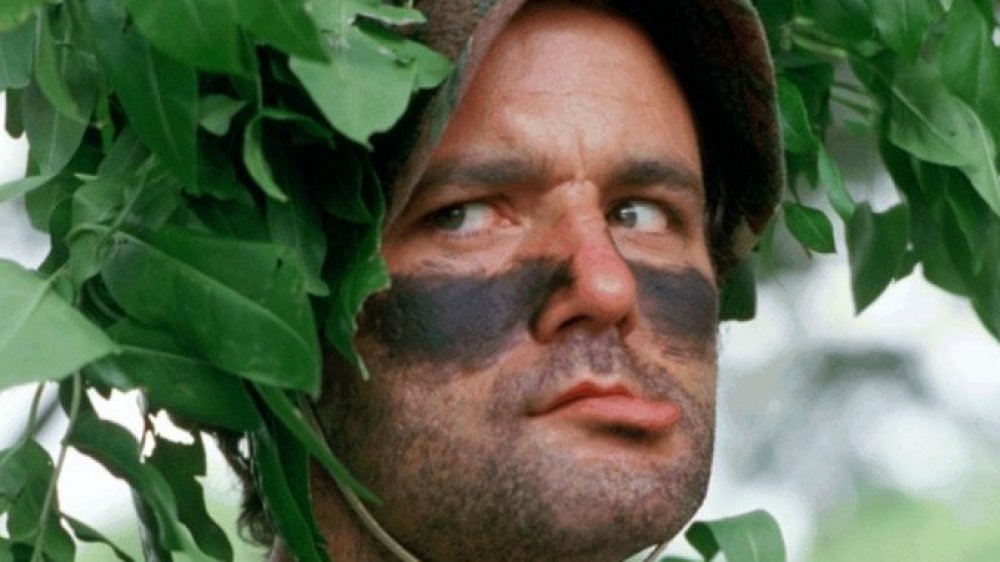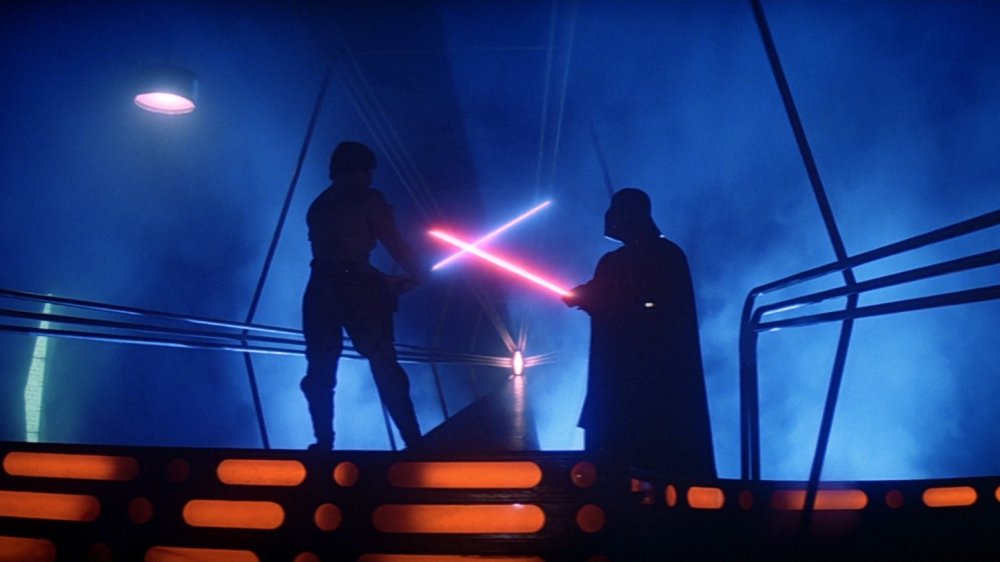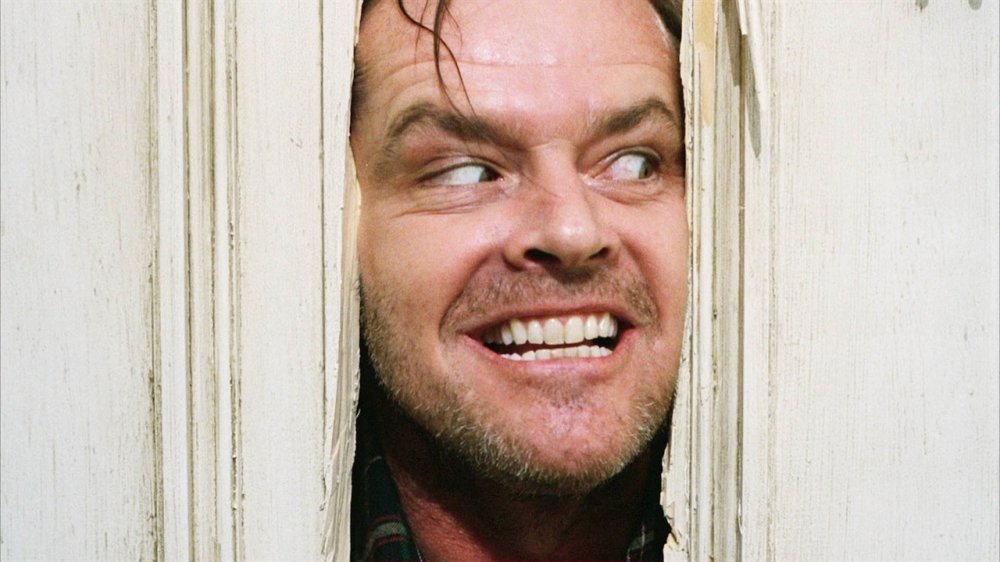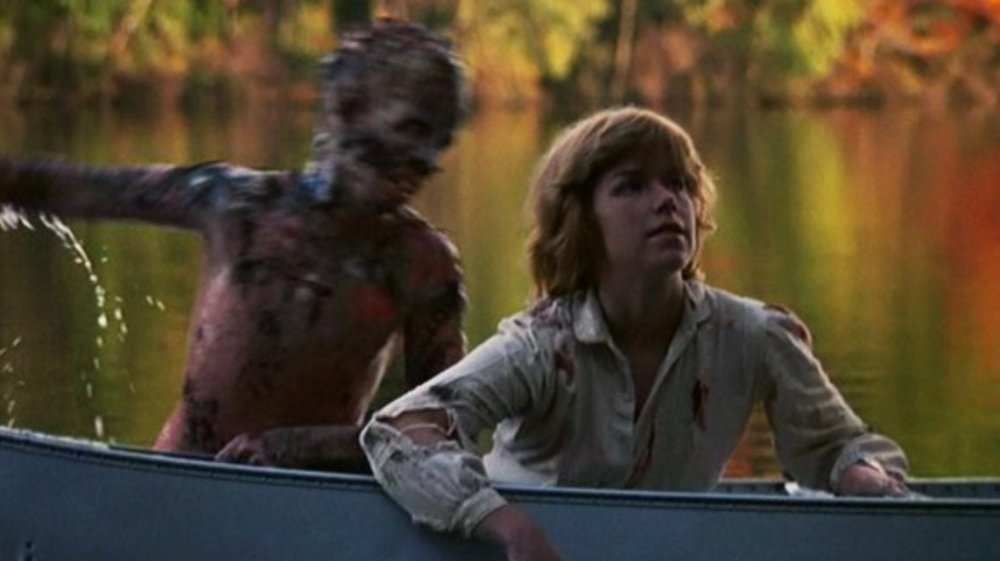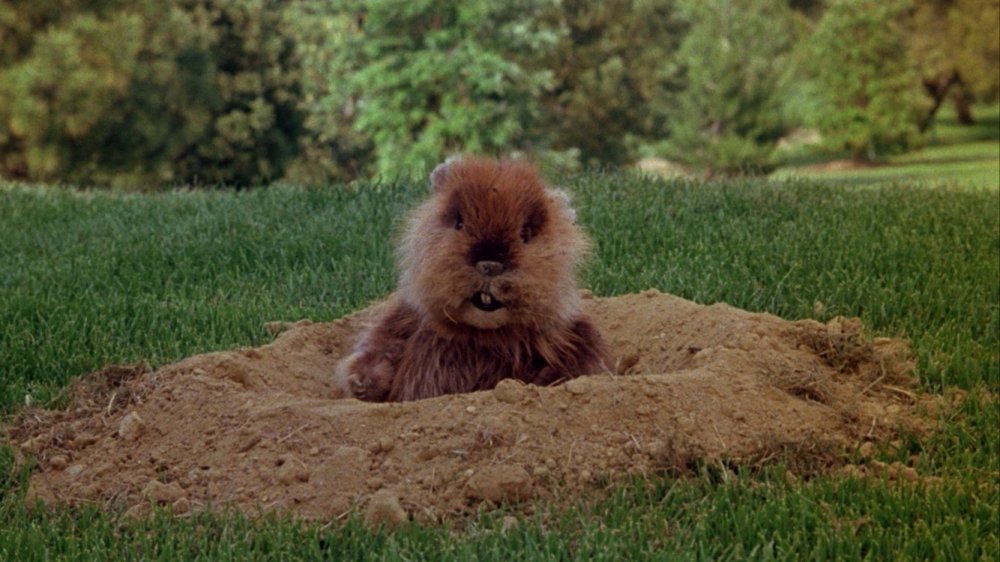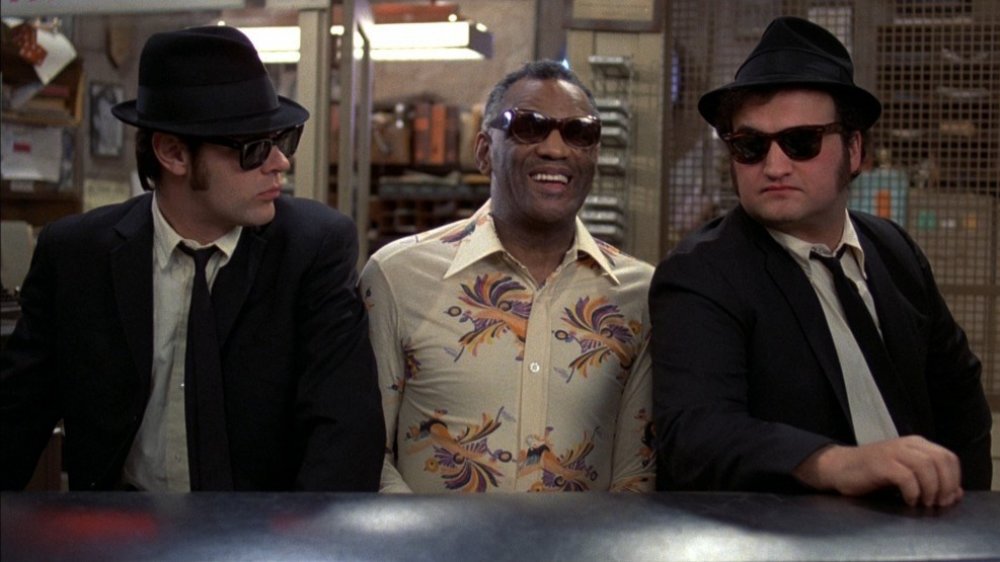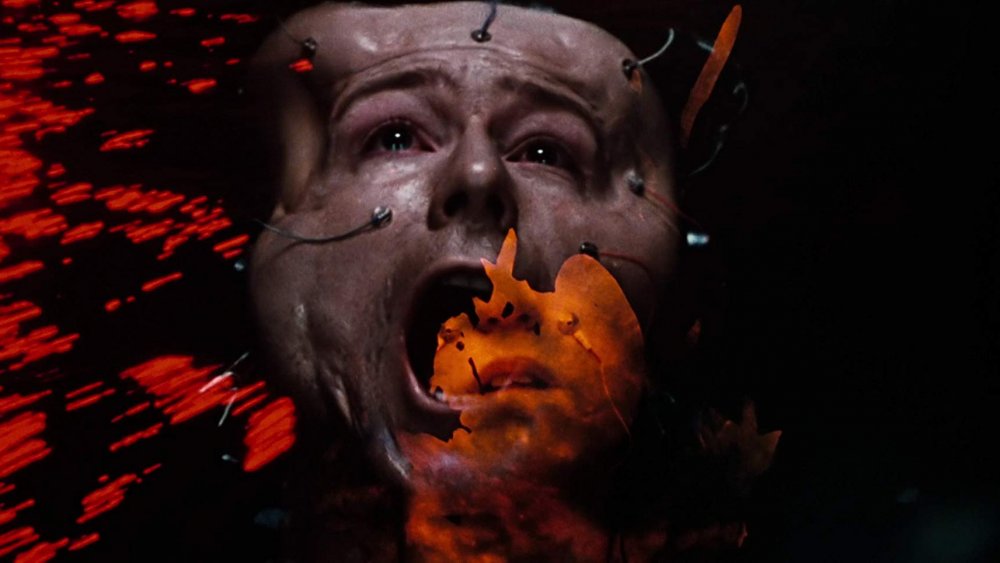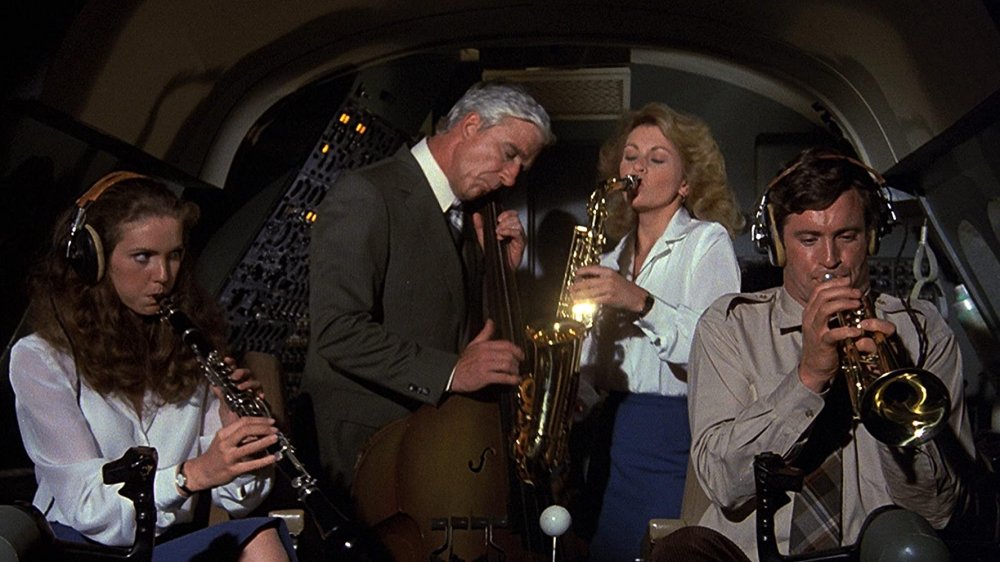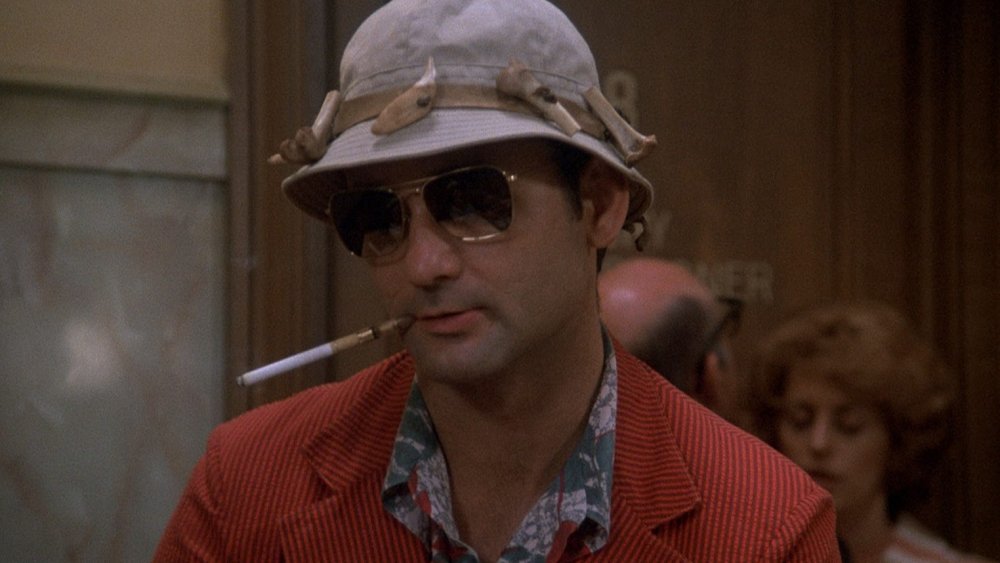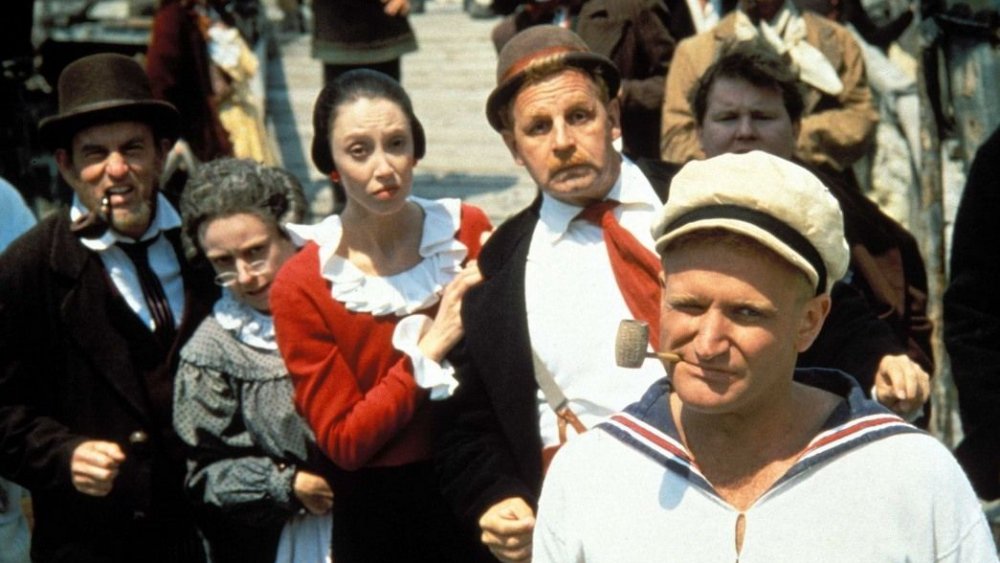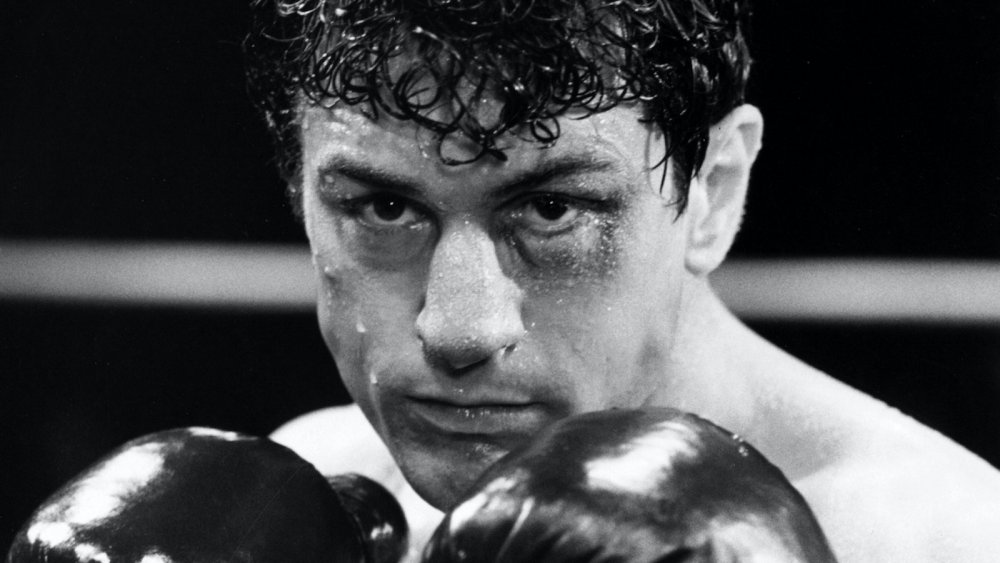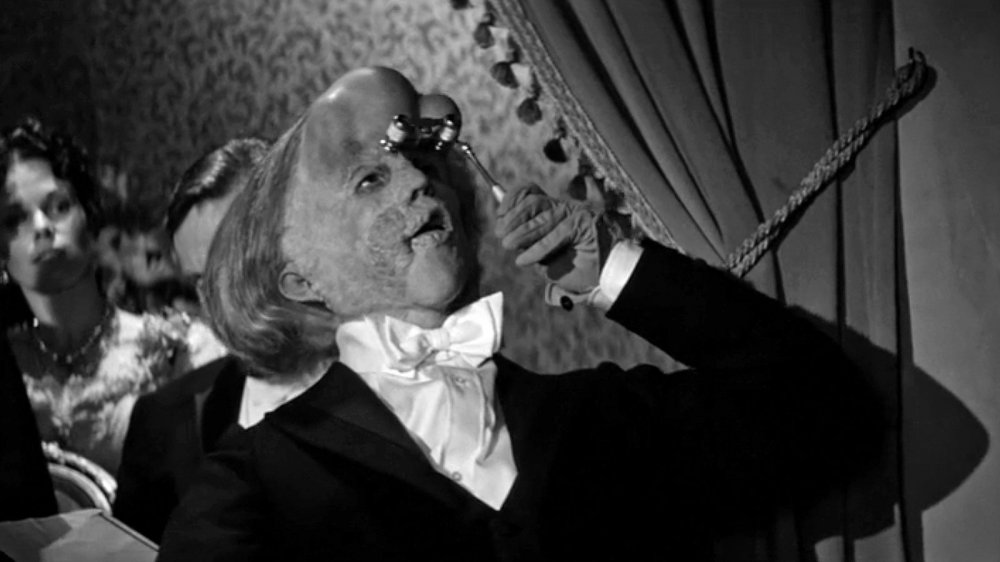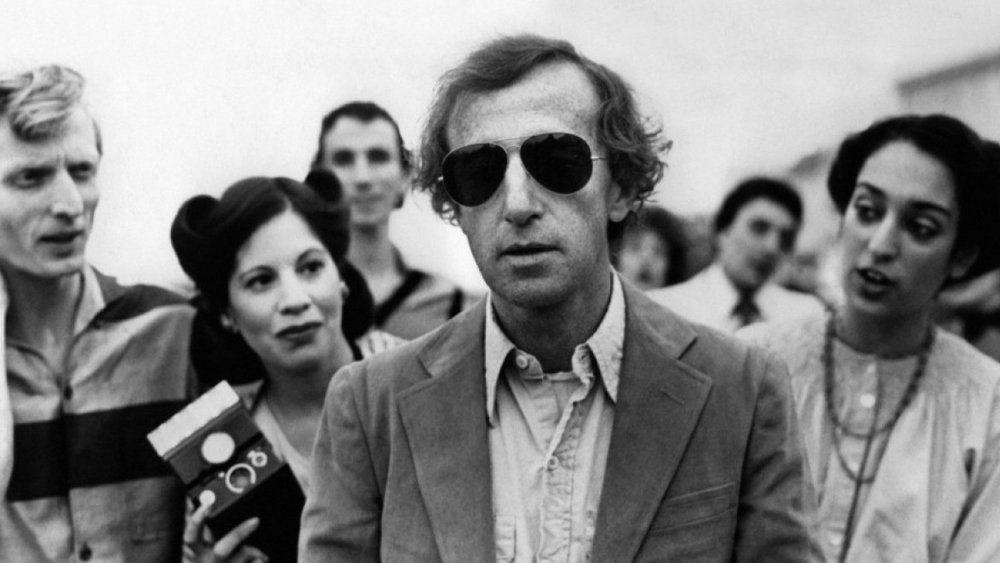Great Movies We Can't Believe Are Turning 40 In 2020
The year 1980 kicked off a decade that has people these days feeling nostalgic. From '80s-themed dance parties and spandex to Stranger Things, the era still holds such a strong influence today that it's sometimes hard to believe how long ago it really was. Think of all the things we take for granted now that first debuted in 1980 — the Rubik's Cube, Pac-Man, CNN, and a whole lot of great movies.
And many of the movies that came out all those years ago are still making their presence felt today. From comedies to horror and everything in between, 1980 brought us a slew of the most influential films ever made. Some were smash-hit blockbusters that we all know and love to this day. Others flew a bit more under the radar while making an important impact nonetheless. All of them boasted directors, actors, and characters who changed moviemaking forever ... and believe it or not, those films are turning 40 in 2020. And to that end, here are some of the best movies from 1980 that we can't believe are finally over the hill.
The Empire Strikes Back is a 40-year-old film with a monumental legacy
Released on May 21, The Empire Strikes Back is one of the biggest movies of all time, establishing the equation for the perfect sequel and setting the high point by which all Star Wars movies are measured.
Just in case you've spent your entire life living under a rock, The Empire Strikes Back picked up where the first Star Wars installment left off and not only continued the tale of Luke, Leia, Han, and company, but it expanded the universe, enriched our understanding of the characters, and proved that a story about space wizards and laser swords could delve a whole lot deeper into the human experience than any of us would've thought. It also gave us one of the greatest movie plot twists of all time (coupled with the eternal "No, I am your father" line), and it left audiences everywhere frenzied for the finale to come.
The Empire Strikes Back grossed $290 million on an $18 million budget. Adjusted for inflation, that makes it the second highest grossing sequel and the thirteenth highest-grossing film at the domestic box office. Numbers like that ensured the franchise would go on to become the dynasty it is today.
The Shining is still terrifying in 2020
The year 1980 was a great one for amazing movies with memorable dialogue. For example, take The Shining, which gave us one of the scariest lines of all time with, "Heeeeeere's Johnny!"
Directed by the renowned auteur Stanley Kubrick and adapted from the novel by Stephen King, The Shining tells the story of the Torrance family, comprised of the maniacal writer and father Jack, the fretful and frightened mother Wendy, and their son Danny, who possesses a rare psychic ability called "the shining." When Jack is hired to serve as the winter caretaker for a remote mountain hotel, at first it seems like the perfect opportunity to earn some money while he works on his book. But it quickly becomes apparent that the Overlook Hotel is not what it seems.
The Shining isn't just one of the greatest horror movies ever made, but it stands as one of the greatest films ever put to screen, period. It was one of the first horror flicks to elevate the genre and prove that it could have real depth rather than mere scares. And while the story's original author Stephen King might hate how the movie turned out, pretty much everyone else agrees that it's a masterpiece. And 40 years later, it's still just as terrifying.
Friday the 13th created one of the all-time horror franchises
Set at the isolated Camp Crystal Lake summer camp, Friday the 13th warns of the brutal consequences that can occur when teenage camp counselors let their hormones get the best of them. We watch from the viewpoint of a mysterious killer who stalks said teens from the shadows, looking on as they commit youthful acts of indiscretion. Then whenever each counselor has the bad luck to find themselves on their own, the killer strikes with gory results.
Falling in the middle of the slasher golden era that began with John Carpenter's Halloween and closed with Wes Craven's A Nightmare on Elm Street, Friday the 13th helped to popularize the genre, and it kicked off one of the most successful and enduring franchises of all time. Of course, while it introduced the infamous slasher villain Jason, it wasn't until the second installment that he actually started killing people, and it wasn't until Part III that he actually got the hockey mask. In fact, in the original film, he barely shows up at all. Nevertheless, over 40 years later, Jason still looms large over the pop cultural consciousness.
Caddyshack was a bizarre comedy with some really big names
Without a doubt, Caddyshack is one of the grand paragons of the screwball comedy, showing just how hilariously absurd the genre can be. For starters, just look at the plot. A ritzy golf club finds itself besieged by an in-your-face visitor (played by the in-your-faciest of the in-your-facey, Rodney Dangerfield) and a ... dancing gopher? If that seems like a strange premise for a movie, it is. And things get stranger from there.
Joining Dangerfield are the renowned comedians Chevy Chase and Bill Murray, and these three powerhouses of hilarity leave the screen overflowing with humor. And under the skilled direction of comedy legend Harold Ramis — known for directing such classics as Ghostbusters and Groundhog Day — there isn't a scene in the movie that wastes an opportunity for a gag. Packed with seriously funny talent, writing of razor-sharp wit, and — we can't stress this enough — a dancing gopher, few comedies are as iconic to the genre as Caddyshack, even four decades later.
Even 40 years later, The Blues Brothers is still making us laugh
The year 1980 saw quite a few of the founding Saturday Night Live cast members taking to the big screen. For example, Bill Murray and Chevy Case were in Caddyshack. But while they were busy putting golf balls and dealing with gophers, John Belushi and Dan Aykroyd tore up Chicago to hilarious effect in The Blues Brothers.
Our starring twosome portray Jake and Elwood Blues, a pair of down on their luck brothers with charitable intentions. The duo need just one big score so they can get enough money for a bunch of nuns who need to save an orphanage. Donning their signature black suits and sunglasses, the brothers go on an Odyssean adventure that pits them against rednecks, Nazis, and a machine gun-wielding Carrie Fisher, the sum total of which concludes with one of the most over-the-top climaxes ever put to screen. And there's a lot of great music along the way.
Altered States is freakier than any movie you'll see in 2020
Altered States tells the story of scientist Edward Jessup, a researcher who becomes fascinated by the quest to understand humankind's primordial beginnings, and he begins exploring those origins through a combination of sensory deprivation and psychedelics. As you can probably imagine, things get very weird from there ... and not in an upbeat sort of fun, weird way. Let's just say that Jessup's research reveals a fairly grim aspect of humanity.
Directed by the acclaimed offbeat auteur Ken Russell, Altered States famously pushed the boundaries of cinema by combining hallucinatory imagery, sounds, and pyrotechnics. It also introduced the world to now-renowned actor William Hurt, who went on to become a big name thanks to roles in The Big Chill, Broadcast News, and his appearances throughout the Marvel Cinematic Universe.
Hurt's central character, Jessup, is loosely based on a real person, John C. Lilly, who spent his life experimenting with sensory deprivation, LSD, and communication with dolphins. With such bizarre interests, it's no wonder he ended up spending a lot of his time hanging around looming counterculture figures like Timothy Leary and Ram Dass. And with that kind of background, it totally makes sense that this 40-year-old sci-fi flick delves really deep into all sorts of freaky, trippy strangeness.
Airplane! is one of the funniest films of the past 40 years
Be sure to fasten your safety belts and return your tray table to its upright and locked position, because we're veering into the realm of the screwball comedy. And this movie is about as screwy as they come.
Airplane! was 1980's satirical reaction to a slew of overly serious disaster flicks that had been popular throughout the preceding decade. The movie has a plot — something about a plane that's placed in danger when the flight crew becomes incapacitated by food poisoning — but that isn't important. The movie is mostly an excuse to cram together a planeload of slapstick gags, puns, surreal humor, and some good old-fashioned dirty jokes.
It was a massive success, raking in $83 million on a mere $3.5 million budget. Since then, it's appeared in many prestigious lists of the greatest comedies and movies of all time, and it was even added to the National Film Registry at the Library of Congress (alongside The Empire Strikes Back) thanks to the fact that it's "culturally, historically, or aesthetically significant."
Airplane! also introduced the world to the hilarious cut-up Leslie Nielsen, who went on to star in the likes of The Naked Gun and Dracula: Dead and Loving It. Funny enough, Nielsen's only previous movie outings were exactly the kinds of over-the-top serious thrillers that Airplane! was poking fun at, like Forbidden Planet and The Poseidon Adventure.
Where the Buffalo Roam features a fascinating Bill Murray performance
Where the Buffalo Roam is an oddity that didn't really find an audience back in 1980, but it still carved its place in the history of counterculture film. The film stars Bill Murray as the infamous and inimitable writer Hunter S. Thompson as he roams the country covering the Super Bowl, Watergate, the 1972 presidential election, and the revolutionary actions of his friend and attorney Carl Lazlo (played rather hilariously by the great Peter Boyle). It's a weird, sometime funny movie that just doesn't quite come together the way director Terry Gilliam's later shot at Thompson, Fear and Loathing in Las Vegas, would.
However, even though the movie doesn't quite work, the thing that makes it something of a priceless cultural artifact is Bill Murray's pitch-perfect portrayal of the grand freak himself, Hunter Thompson. It's weird, it's wacky, it's definitely over the top, and viewed alongside his nutty performance as the brain-damaged groundskeeper in Caddyshack, it's not hard to guess that Murray probably had a lot of fun goofing around in 1980.
Popeye introduced Robin Williams to moviegoers
Popeye — yes, the spinach-chowing, massive forearm-flexing sailor man himself — had all the right pieces for a great film, but in the end, they didn't quite fit. The 1980 comedy was helmed by one of the great directors of all time, Robert Altman, who gave us such classics as M*A*S*H, McCabe & Mrs. Miller, and The Long Goodbye. The score was written by Harry Nilsson, one of the very best songwriters. And the titular character was played by none other than Robin Williams, one of the greatest actors in Hollywood history. And was there ever any actress more perfect for Olive Oyl than Shelley Duvall? The sum of all this talent should've been extraordinary, but somehow, they didn't quite pull it off.
Maybe it was the tone? Because while Popeye was intended to be a family-friendly musical, it has a decidedly dark undercurrent. To the adult viewer, it's clear that Popeye — with his muttering speech and social confusion — was likely the victim of psychological and physical trauma at the hands of his long-lost father, for whom he's searching during the movie. That's some heady stuff for a family seeking fun at the cinema.
But the impact of Popeye is easy to explain, as it gave us Robin Williams. Yes, this was Williams' first foray onto the big screen, and while the movie on a whole didn't entirely come off, it's impossible not to get swept up in the lead's silly charm and even to see an undercurrent of the dramatic power he would one day wield.
At 40 years old, Raging Bull is one of the best movies ever made
Sometimes things takes a turn for the serious, and there are few directors in the business who know how to bring life's grimmest struggles to the screen as well as Martin Scorsese. So when you pair that man up with one of the most tragic sports stories of all time, well, that's Academy Award-winning stuff right there.
Starring the matchless duo of Robert De Niro and Joe Pesci, Raging Bull is based on the real-life boxer Jake LaMotta, whose self-destructive tendencies and uncontrollable rage both propelled him to the heights of boxing fame and dragged his personal life into abysmal depths. And while the movie captures the highs, it particularly hits the lows right on the chin as we watch De Niro's Oscar-winning portrayal of a violent man tormented by too many demons.
The impact of Raging Bull can't be overstated. It firmly established Martin Scorsese as one of the greatest directors of his generation, and for the first time, it brought us the peerless chemistry shared by De Niro and Pesci. Over the next several decades, these three geniuses of the screen would go on to repeat the magic in Goodfellas, Casino, and The Irishman.
The Elephant Man remains incredibly depressing
When it comes to exploring the darker side of life, it doesn't get much more serious than The Elephant Man. The second feature from renowned oddball filmmaker David Lynch, this 1980 classic is based on the true story of John Merrick, a 19th-century Londoner who was born with severe deformities, resulting in a lifetime of mistreatment and ridicule. Merrick — played by the great John Hurt — is discovered working under terrible conditions as a circus sideshow freak by a Dr. Frederick Treves, played by the also great Anthony Hopkins. Treves recognizes the intellect and humanity buried beneath Merrick's deformities and attempts to rescue him from a life of torment.
Today, the film is widely considered a masterpiece, and it propelled director David Lynch into more or less mainstream recognition. One interesting fact about the film is that it was produced by famed comedy director Mel Brooks, who's known for creating decidedly more lighthearted fare. In fact, Brooks was so concerned that his reputation as a funnyman would ruin the prospects for The Elephant Man to be taken seriously that he had his name removed from the credits. But rest assured, there's no humor to be found here, and over 40 years later, The Elephant Man is still one of the saddest movies ever made.
Despite the baggage, Stardust Memories is still worth a watch
These days, Woody Allen has a pretty notorious reputation thanks to his controversial personal life, but back in 1980, he was arguably the biggest director in the world. Stardust Memories was his tenth directorial outing, and while it's grown in acclaim as time has gone on, it put off many viewers when it was first released due to its somewhat depressed tone. Films like Sleeper, Annie Hall, and Manhattan had put Allen on the map as the one of the top comedic directors of all time, but with Stardust Memories, he was revealing a darker, more meditative side that left some in the audience skeptical.
In Stardust, Allen tells the story director Sandy Bates (played by Allen), a filmmaker whose writing block happens to correspond with his invitation to attend a small festival dedicated to his work. While there, he's forced to navigate obnoxiously fawning fans, romances gone wrong, pushy studio executives, and ... a visit from a UFO? Let's just say that while Stardust Memories isn't for everyone — especially since our perspective of the filmmaker has changed a lot in the past 40 years — fans of thoughtful, cerebral comedies should definitely give it a watch.
